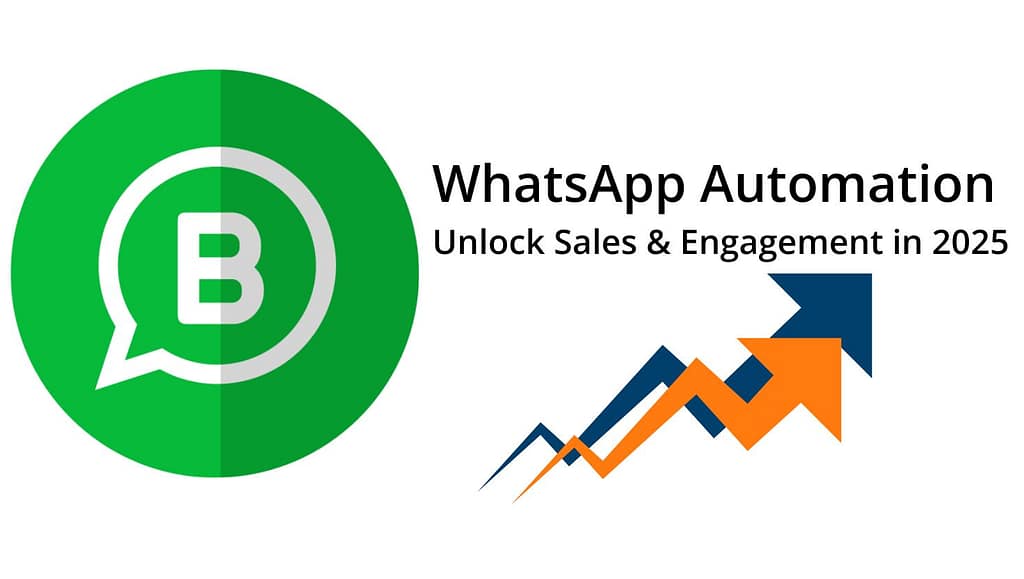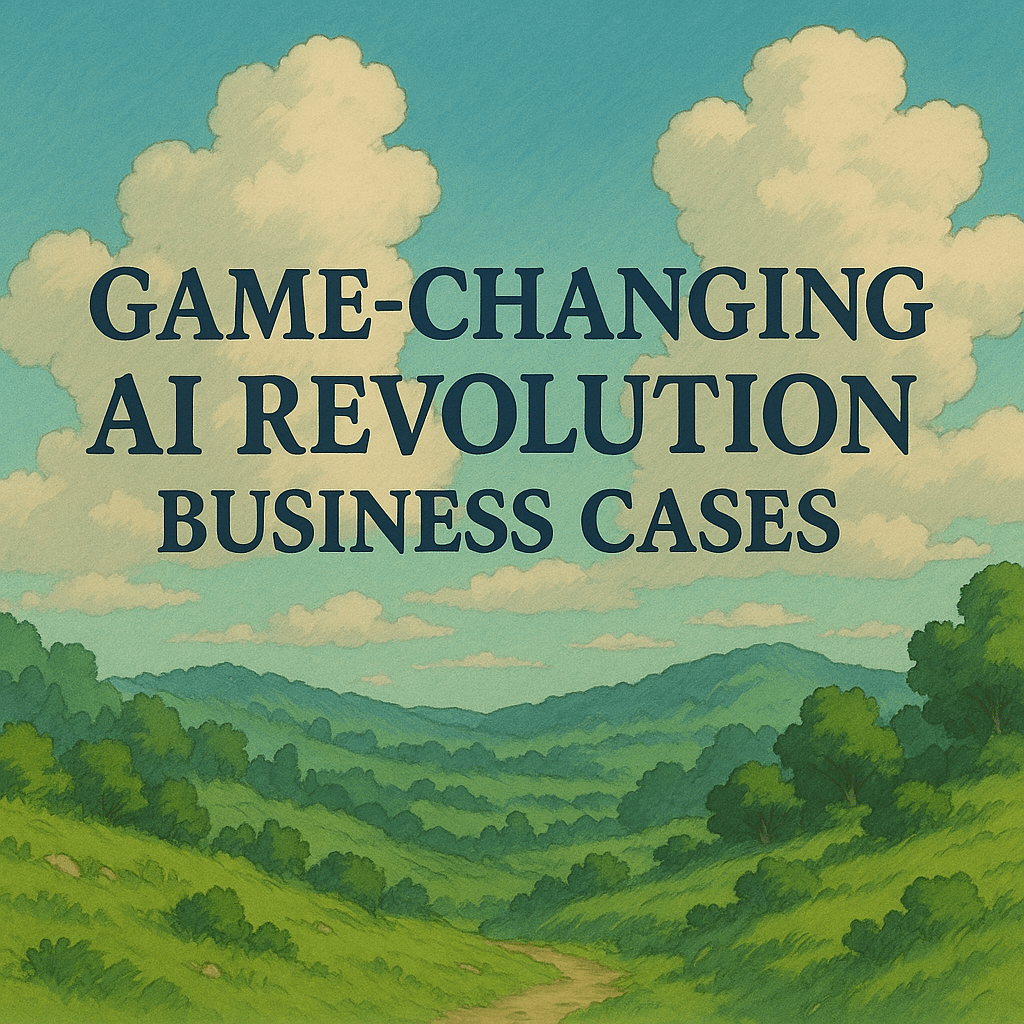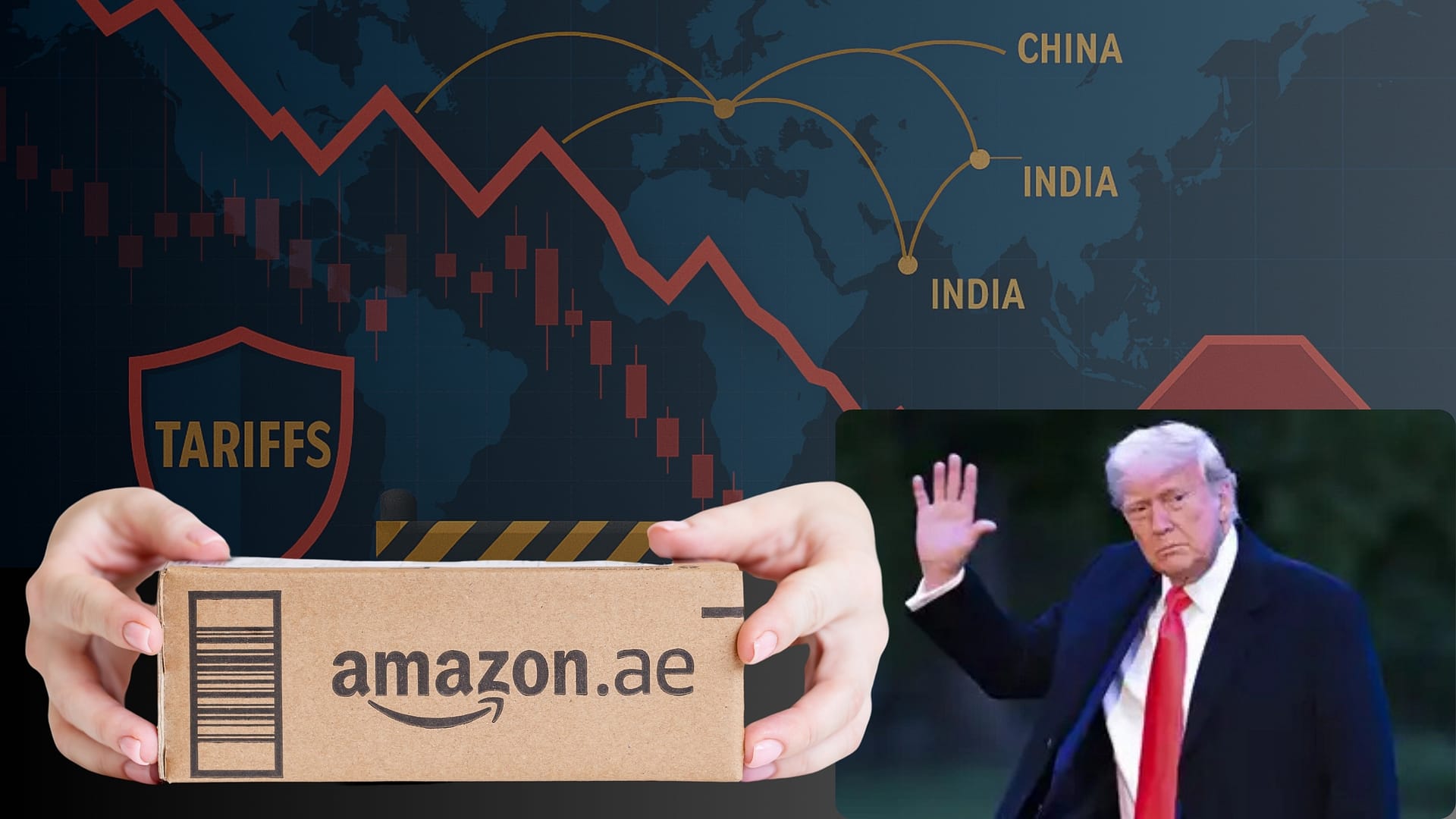WhatsApp Automation for D2C Brands has emerged as the ultimate growth catalyst, delivering an unprecedented 270% return on investment over three years while revolutionizing customer engagement through intelligent automation.
As direct-to-consumer businesses face increasing pressure to scale personalized communication, WhatsApp automation provides the perfect solution combining the intimacy of one-on-one conversation with the efficiency of enterprise-grade automation.
What is WhatsApp Automation for D2C Brands?
WhatsApp Automation for D2C Brands represents a sophisticated ecosystem of AI-powered tools and workflows that streamline customer interactions across the entire purchase journey. Unlike traditional marketing channels that struggle with 2-5% conversion rates, WhatsApp automation achieves remarkable 45-60% conversion rates while maintaining the personal touch that modern consumers demand.
This technology leverages the WhatsApp Business API to create intelligent chatbots, automated message sequences, and dynamic customer journeys that respond instantly to customer needs. With 98% open rates compared to email’s meager 21%, WhatsApp automation ensures your messages reach customers when and where they’re most receptive.
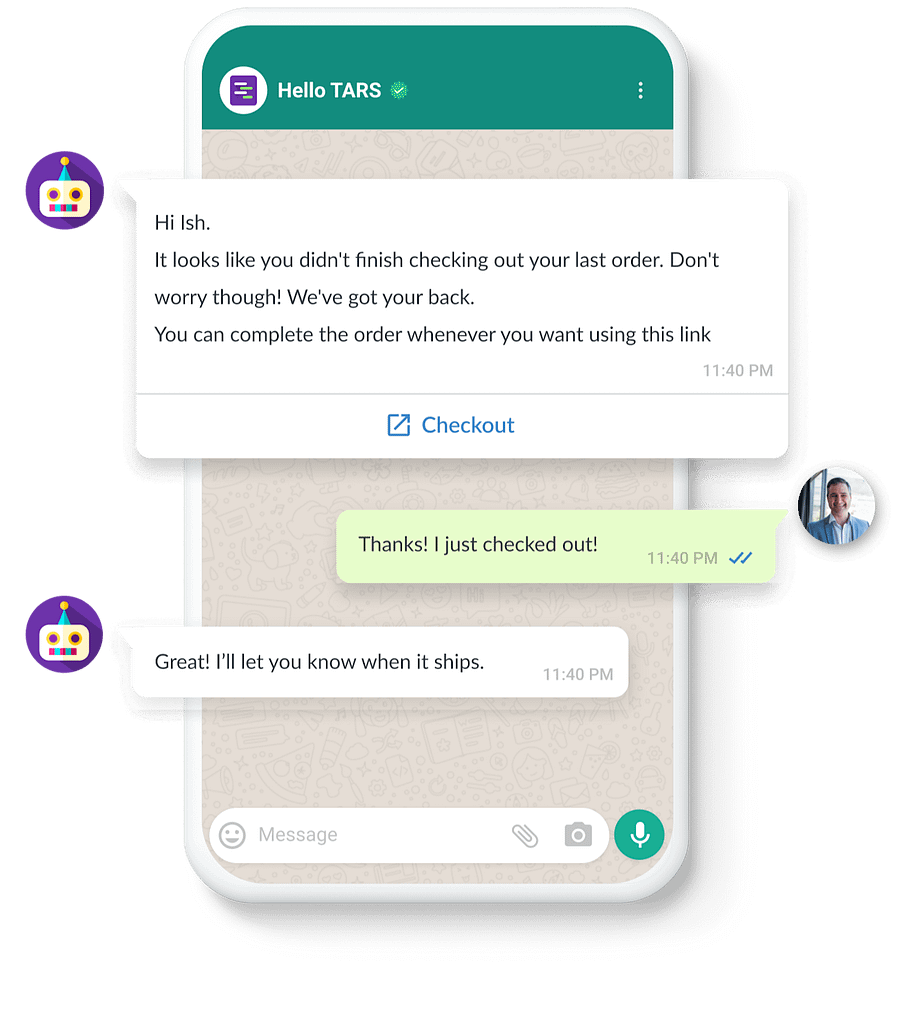
WhatsApp chatbot automates customer order follow-up messages for business engagement
The power lies in its ability to handle thousands of conversations simultaneously while maintaining personalization at scale. Modern D2C brands are discovering that automation doesn’t replace human connection it enhances it by ensuring every customer interaction is timely, relevant, and valuable.
The Revolutionary Impact of WhatsApp Automation on D2C Success
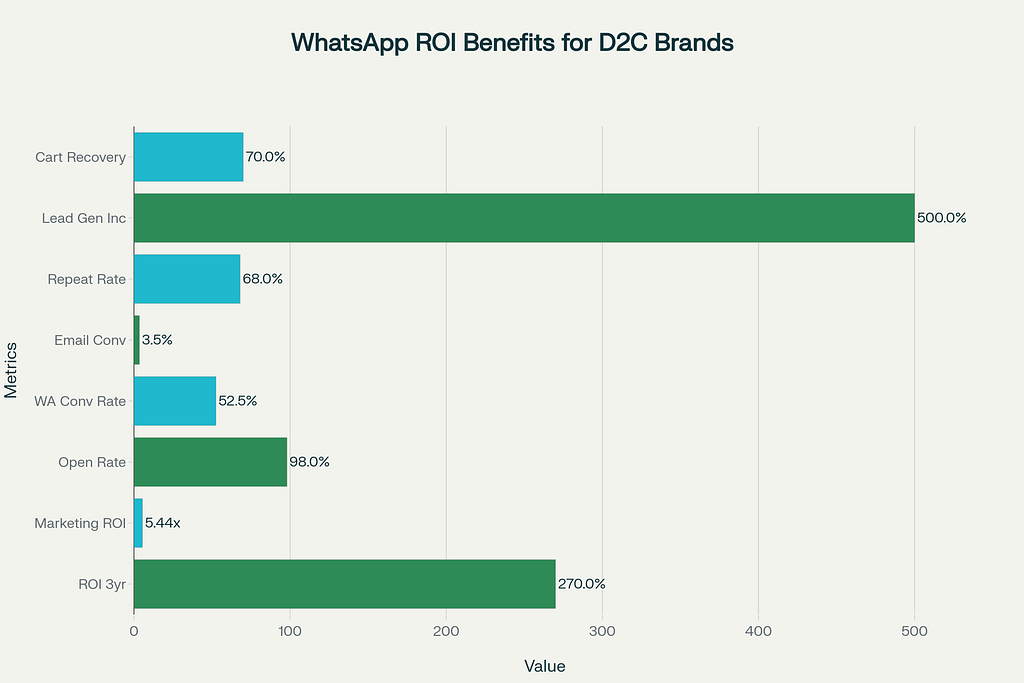
WhatsApp Automation delivers exceptional ROI and performance metrics for D2C brands across multiple KPIs
The data speaks volumes about WhatsApp automation’s transformative power. Recent studies reveal that marketing automation delivers $5.44 ROI for every dollar spent, with WhatsApp automation contributing significantly to these exceptional returns. More importantly, businesses implementing comprehensive WhatsApp automation strategies experience 50% more customer engagement compared to traditional SMS and email campaigns.
Game-Changing Performance Metrics
Response Time Advantage: Businesses responding within 5 minutes are 21x more likely to qualify leads, and WhatsApp automation ensures this happens instantly, 24/7.
Customer Loyalty Revolution: Companies selling exclusively through WhatsApp report a 68% repeat customer rate, far exceeding traditional e-commerce retention rates.
Lead Generation Explosion: WhatsApp customer engagement through automated chatbots can increase lead generation by over 500% while maintaining higher quality prospects.
Essential WhatsApp Business API Features for D2C Automation
The WhatsApp Business API serves as the foundation for sophisticated automation strategies that drive measurable business growth. Understanding these capabilities is crucial for D2C brands seeking competitive advantages in 2025.
Advanced Chatbot Intelligence
Modern WhatsApp Automation for D2C Brands relies heavily on AI-powered chatbots that provide instant, contextual responses to customer inquiries. 67% of consumers now trust chatbot support on WhatsApp, making this channel ideal for automated customer service.
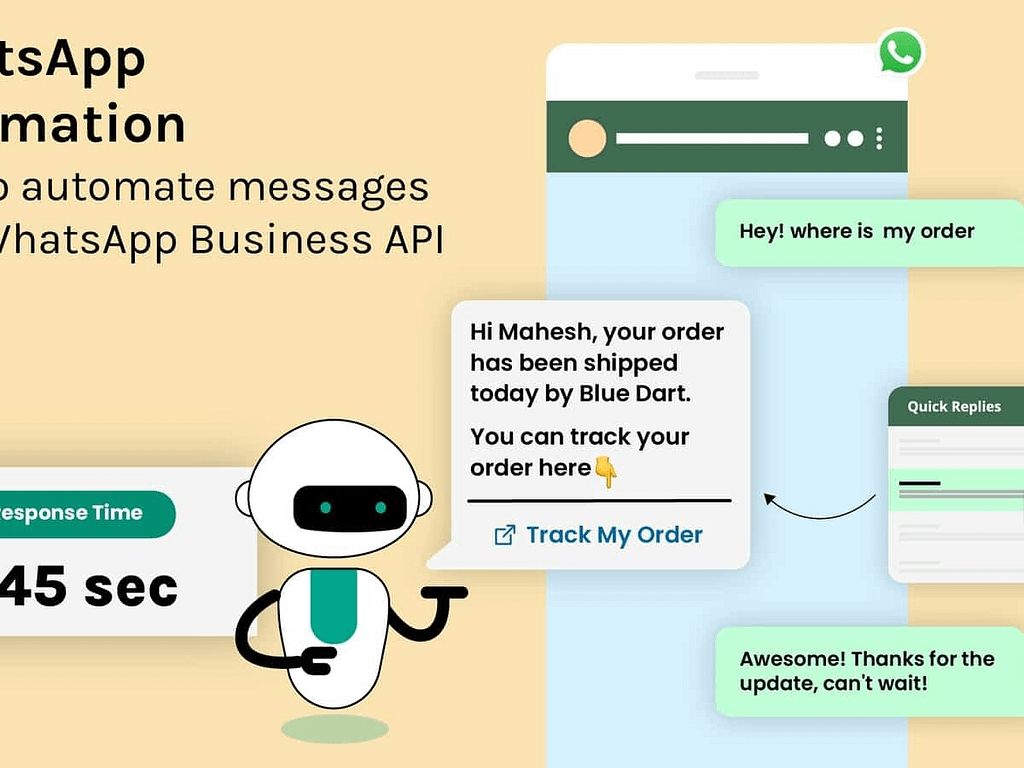
WhatsApp chatbot automation exemplifies efficient customer engagement with fast, automated order tracking responses
These intelligent systems handle everything from product recommendations to order tracking, freeing human agents to focus on complex queries and relationship building. The result is 3x better conversion rates compared to traditional website forms.
Personalized Customer Journey Automation
D2C WhatsApp strategies excel when they create personalized experiences at scale. Advanced automation platforms segment audiences based on behavior, purchase history, and preferences, delivering highly targeted messaging sequences.
Cart Abandonment Recovery: WhatsApp automation enables recovery of up to 70% of abandoned carts through strategic, personalized reminder sequences.
Post-Purchase Engagement: Automated follow-up sequences nurture customer relationships, driving repeat purchases and increasing lifetime value.
Broadcast Messaging and Campaign Management
Smart broadcast features allow D2C brands to send personalized messages to thousands of customers simultaneously. Unlike generic mass marketing, these campaigns use dynamic content based on customer data, achieving significantly higher engagement rates.
Proven D2C WhatsApp Strategies That Maximize ROI
1. Implement Multi-Stage Automation Workflows
The most successful WhatsApp Automation for D2C Brands incorporates sophisticated multi-stage workflows that nurture leads from initial contact through post-purchase advocacy. These systems create seamless customer experiences while dramatically improving conversion rates.
Welcome Series Automation: Instantly engage new subscribers with personalized welcome sequences that introduce your brand, share valuable content, and guide customers toward their first purchase.
Behavioral Trigger Campaigns: Set up automated responses based on specific customer actions—browsing behavior, email opens, or website visits—ensuring every interaction feels timely and relevant.
2. Leverage AI-Powered Customer Segmentation
Advanced WhatsApp customer engagement strategies rely on intelligent segmentation that goes beyond basic demographics. Modern automation platforms analyze customer behavior patterns, purchase history, and engagement data to create hyper-targeted messaging campaigns.
Dynamic Product Recommendations: Use AI to suggest relevant products based on browsing history and similar customer preferences, increasing average order values and customer satisfaction.
Lifecycle Stage Targeting: Customize messaging based on where customers are in their journey—new leads receive educational content while loyal customers get exclusive offers and early access.
3. Optimize Conversion Through Interactive Features
D2C WhatsApp strategies achieve exceptional results by maximizing WhatsApp’s interactive capabilities. Rich media, quick reply buttons, and catalog integration create immersive shopping experiences that drive immediate action.
Interactive Product Catalogs: Showcase products directly within WhatsApp conversations, allowing customers to browse, compare, and purchase without leaving the app.
Quick Reply Workflows: Design conversation flows that guide customers through decision-making processes using strategically placed quick reply buttons.
Conversion Rate Comparison
WhatsApp Automation: 45-60% conversion rates
Email Marketing: 2-5% conversion rates
SMS Marketing: 3-8% conversion rates
This dramatic performance gap translates directly to business impact. D2C brands switching to WhatsApp automation often see conversion rate improvements of 20-30% within the first quarter of implementation.
Cost-Effectiveness Analysis
WhatsApp Business API pricing changes in 2025 make automation even more attractive for D2C brands. With free inbound conversations and competitive per-message rates, the total cost of customer acquisition through WhatsApp often proves significantly lower than traditional channels.
Advanced Integration Strategies for Maximum Impact
Modern D2C WhatsApp strategies achieve their full potential through seamless integration with existing business systems. These connections create unified customer experiences while automating complex workflows.
CRM and E-commerce Platform Integration
Shopify Integration: Automate order confirmations, shipping notifications, and post-purchase follow-ups directly from your e-commerce platform.
Customer Data Synchronization: Ensure WhatsApp conversations inform broader customer profiles, enabling more personalized experiences across all touchpoints.
Marketing Automation Platform Connections
Leading automation platforms now offer native WhatsApp integrations that extend traditional email and SMS workflows into conversational commerce. This omnichannel approach drives higher engagement and better customer lifetime value.
Future-Proofing Your WhatsApp Automation Strategy
As we advance through 2025, WhatsApp Automation for D2C Brands continues evolving with new features and capabilities. Businesses will save an estimated 2.5 billion hours using WhatsApp chatbots by the end of 2025, making early adoption crucial for competitive advantage.
Emerging Automation Trends
Voice Message Integration: Advanced automation platforms are beginning to incorporate voice message capabilities, adding another dimension to customer engagement.
AI-Powered Personalization: Machine learning algorithms are becoming more sophisticated, enabling unprecedented levels of message personalization and timing optimization.
Cross-Platform Orchestration: Future automation systems will seamlessly coordinate customer journeys across WhatsApp, Instagram, Facebook Messenger, and other Meta properties.
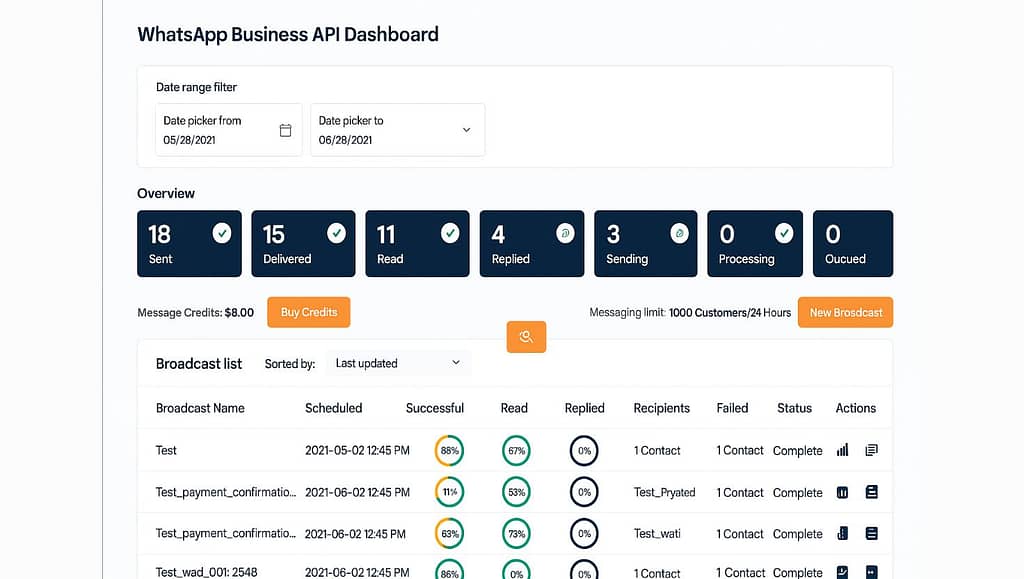
WhatsApp Business API Dashboard showing message delivery, read, and reply statistics with broadcast management features
The evidence overwhelmingly supports WhatsApp automation as the premier growth channel for D2C brands in 2025. With 270% ROI over three years, 98% open rates, and the ability to increase lead generation by 500%, WhatsApp Automation for D2C Brands represents the most effective way to scale personalized customer relationships while driving measurable business growth.
Let’s Build Something Great Together
Have an idea, a question, or just want to explore how we can help your brand grow?
FAQs
1. How quickly can D2C brands see ROI from WhatsApp automation?
Most D2C brands experience positive ROI from WhatsApp Automation for D2C Brands within 60-90 days of implementation. However, initial improvements in response times and customer satisfaction are visible immediately. Studies show that comprehensive automation strategies deliver 270% ROI over three years, with significant gains appearing in the first quarter through improved conversion rates and reduced operational costs.
2. What’s the difference between WhatsApp chatbots and full automation platforms?
Basic WhatsApp Business API chatbots handle simple FAQs and responses, while comprehensive automation platforms create sophisticated customer journeys across multiple touchpoints. Full automation systems integrate with CRM platforms, e-commerce stores, and marketing tools to deliver 45-60% conversion rates compared to basic chatbots’ more limited capabilities. Advanced platforms also provide detailed analytics, A/B testing, and multi-stage workflow capabilities essential for D2C success.
3. Can WhatsApp automation work for small D2C brands with limited budgets?
Absolutely. WhatsApp customer engagement through automation is particularly cost-effective for smaller brands because it eliminates the need for large customer service teams while delivering superior results. With marketing automation providing $5.44 ROI for every dollar spent, even modest investments in WhatsApp automation generate significant returns. Many automation platforms offer scalable pricing that grows with your business, making it accessible for startups and established brands alike.
4. How does WhatsApp automation compliance work, and what are the risks?
D2C WhatsApp strategies must comply with WhatsApp’s Commerce Policy and data protection regulations. Key requirements include obtaining explicit opt-in consent, providing clear opt-out mechanisms, and using approved message templates. Non-compliance can result in account restrictions, but businesses following proper protocols experience minimal issues. The platform’s built-in compliance features and Business Solution Provider guidance make it straightforward to maintain compliant automation systems.
5. What ROI metrics should D2C brands track for WhatsApp automation?
Essential metrics include conversion rates (targeting 45-60% vs traditional 2-5%), customer lifetime value improvements, support cost reductions, and lead generation increases (potentially 500%+ growth). Track both immediate performance indicators like open rates (98% for WhatsApp vs 21% for email) and long-term business impact such as repeat purchase rates (68% for WhatsApp-exclusive sellers) and overall customer satisfaction scores.

